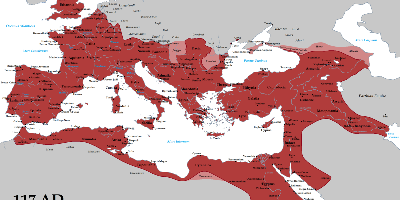1 janv. 63 - Roman-Parthian War Ends
Description:
In 66, Tiridates visited Rome to receive his crown and was lavishly received by Nero, who used the occasion to boost his own popularity. He ordered the gates of the Temple of Janus to be shut, thus declaring that peace reigned throughout the Roman Empire.Nero celebrated this peace as a major achievement: he was hailed as imperator and held a triumph, although no new territory had been won, and the peace reflected a compromise rather than a true victory. For although Rome could prevail militarily in Armenia, politically, she had no genuine alternatives to the Arsacid candidacy on offer for the Armenian throne. Armenia would henceforth be ruled by an Iranian dynasty, and despite its nominal allegiance to Rome, it would come under increasing Parthian influence. In the judgment of later generations, "Nero had lost Armenia", and although the Peace of Rhandeia ushered in a period of relatively peaceful relations that would last for 50 years, Armenia would continue to be a constant bone of contention between the Romans, the Parthians, and their Sassanid successors. For the short term however, the peace that Nero secured was kept by both sides, even while the bulk of Rome's eastern forces was involved in the suppression of the Jewish Revolt.
As for Corbulo, he was honoured by Nero as the man who had brought this "triumph" to be, but his popularity and influence with the army made him a potential rival. Together with the involvement of his son-in-law Lucius Annius Vinicianus in a foiled plot against Nero in 66, Corbulo became suspect in the eyes of the emperor. In 67, while journeying in Greece, Nero ordered him to be executed; upon hearing of this, Corbulo committed suicide.
The war had also demonstrated to the Romans that the defensive system in the East, as put in place by Augustus, was no longer adequate. Thus the following years saw a major reorganization of the Roman East: the client kingdoms of Pontus and Colchis (in 64 AD), Cilicia, Commagene and Lesser Armenia (in 72 AD) were made into Roman provinces, the number of legions in the area increased, and Roman presence in the Caucasian client states of Iberia and Albania strengthened, with the aim of strategically encircling Armenia. Direct Roman control was extended to the entire line of the Euphrates, marking the beginning of the Eastern limes that would survive until the Muslim conquests of the 7th century.
Ajouté au bande de temps:
Date:
1 janv. 63
Maintenaint
~ Il y a 1964 ans
